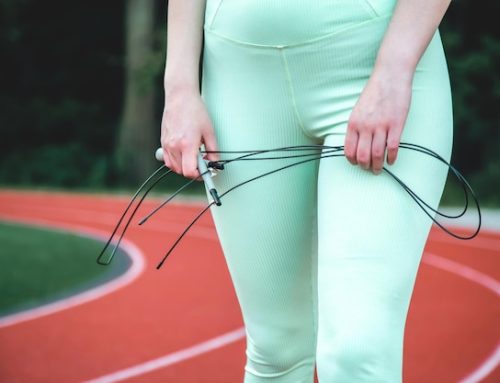The Science Behind Stomach Pain During Skipping Rope
Skipping rope is considered to be one of the most effective cardio exercises that can help you stay fit and healthy. However, some people experience stomach pain when they skip rope, and it can become a hindrance to their workout routine. In this article, we will explore the reasons behind stomach pain during skipping rope.

Designed for adults, kids, and athletes of all levels, this adjustable-speed jumping rope boasts non-slip handles, ensuring a secure grip during workouts. Ideal for home exercises, body fitness, fat burning, boxing, Crossfit, and MMA. A versatile tool for diverse fitness needs.
The Role of Breathing
Breathing is a crucial aspect of a successful rope skipping session. When you skip rope, you tend to breathe quickly and deeply to keep up with the pace of the exercise. However, if you are not used to this level of intense breathing, it can result in stomach pain. This is because breathing quickly and deeply can cause the diaphragm to tense up, which can contribute to abdominal pain.
Dehydration
Skipping rope can cause you to sweat profusely, which can lead to dehydration. Dehydration can cause stomach cramps, as your body is not receiving enough fluid to help with digestion. It is crucial to stay hydrated while skipping rope to reduce the risk of stomach pain.
Overeating
If you consume a large meal before skipping rope, it can lead to stomach pain. Ingesting a lot of food before an intense cardio session can cause your stomach to work overtime, leading to indigestion and stomach cramps. It is recommended that you should not eat at least two hours before skipping rope.
Wrong Food Choices
The types of food you consume before a workout can also affect your stomach. Consuming foods that are high in fiber or fat can lead to indigestion and stomach pain. It is best to consume foods that are easy to digest, such as fruits, vegetables, or lean protein, to help avoid stomach pain while skipping rope.
Poor Posture
Skipping rope with poor posture can lead to stomach pain. If you are not standing upright or are hunching over while skipping, it can cause pressure on your abdominal muscles leading to stomach cramps. Maintaining proper posture while skipping rope will help prevent stomach pain.
Medical Conditions
In some cases, stomach pain during rope skipping can be a symptom of an underlying medical condition such as acid reflux, gastroesophageal reflux disease (GERD), or irritable bowel syndrome (IBS). If you consistently experience stomach pain during rope skipping, it is recommended that you visit a doctor to rule out any medical issues.
Is jump rope good for your stomach?
Yes, jump rope is beneficial for the stomach area in multiple ways:
- Caloric Burn and Fat Loss: Jumping rope is a high-intensity cardiovascular exercise that can help burn calories, which, when combined with a proper diet, can lead to fat loss. Losing fat can result in a more toned appearance in various parts of the body, including the stomach.
- Engaging Core Muscles: While jumping rope, your core muscles – which include muscles in the abdominal region – are engaged to stabilize your body during the movement. This can help improve core strength and muscle tone over time.
- Improved Posture: Regularly jumping rope can lead to stronger back and shoulder muscles. A stronger back and improved posture can make your stomach appear flatter.
However, it’s essential to note that spot reduction (targeting fat loss in a specific area of the body) is not effective. So, while jumping rope can help reduce overall body fat and tone the muscles, it’s not guaranteed that you’ll only or primarily lose fat from the stomach. Incorporating other strength training exercises targeting the core, along with a balanced diet, can more effectively result in a toned stomach area.
Conclusion
Stomach pain during rope skipping can be caused by various factors, such as poor posture, dehydration, overeating, or medical conditions. By maintaining proper posture, staying hydrated, eating the right foods, and avoiding overeating before a workout, you can reduce the risk of stomach pain during rope skipping. If you consistently experience stomach pain during rope skipping, it is advisable to visit a healthcare professional to rule out any underlying medical conditions.






